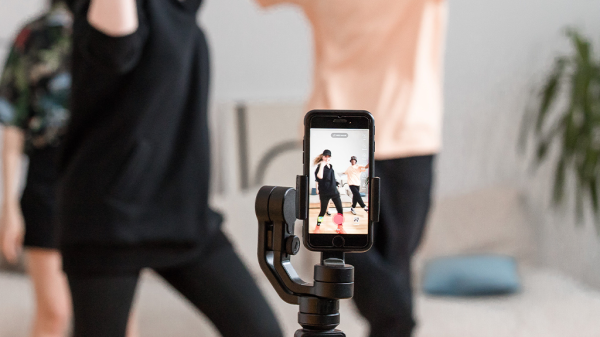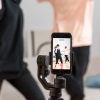Last weekend, I made the risky decision to watch The Social Dilemma on Netflix. I knew it was an important thing to watch, but the risk was that I also knew it would wig me out a bit. As much as I’m someone who is active “online,” the concept of social media overwhelms me almost more than it entertains (or enlightens) me.
The constant sharing of information, the accessibility to information, and the endless barrage of notifications are just a few of the ways social media can cause overwhelm. The documentary went in deeper than this surface-level content and got into the nitty gritty of how people behind the scenes use your data and track your usage.
Former employees of high-profile platforms like Facebook, Twitter, Instagram, Google, and Pinterest gave their two cents on the dangers of social media from a technological standpoint. Basically, our data isn’t just being tracked to be passed along for newsletters and the like. But rather, humans are seen as products that are manipulated to buy and click all day every day in order to make others money and perpetuate information that has astronomical effects. (I’m not nearly as intelligent as these people, so watch the documentary to get the in-depth look at how all of this operates.)
One of the major elements that stuck with me was the end credits of The Social Dilemma where they asked interviewees about the ways they are working to eliminate social media overwhelm in their own lives. Some of these I’ve implemented myself and can attest to. Here’s a short list of things you can do to keep from burning out online.
- Turn off notifications – unless there are things you need to know about immediately (texts, emails, etc.) turn it off. Getting 100 individual notifications within an hour from those who liked your Instagram post will do nothing but burn you (and your battery) out.
- Know how to use these technologies to change the conversation and not perpetuate things like “fake news” and clickbait.
- Uninstall apps that are wasting your time. If you feel yourself wasting hours per week mindlessly scrolling through Facebook but not actually using it, consider deleting the app and only checking the site from a desktop or Internet browser.
- Research and consider using other search tools instead of Google (one interviewee mentioned that Qwant specifically does not collect/store your information the way Google does).
- Don’t perpetuate by watching recommended videos on YouTube, those are tailored to try and sway or sell you things. Pick your own content.
- Research the many extensions that remove these recommendations and help stop the collection of your data.
At the end of the day, just be mindful of how you’re using social media and what you’re sharing – not just about yourself, but the information you’re passing along from and to others. Do your part to make sure what you are sharing is accurate and useful in this conversation.
Staff Writer, Taylor Leddin is a publicist and freelance writer for a number of national outlets. She was featured on Thrive Global as a successful woman in journalism, and is the editor-in-chief of The Tidbit. Taylor resides in Chicago and has a Bachelor in Communication Studies from Illinois State University.












































chris
September 29, 2020 at 11:16 am
This tip is handy “Turn off notifications” but how do we do that in an android mobile ?
Pingback: How to declutter the chaos in your life by cleaning your digital hoarding